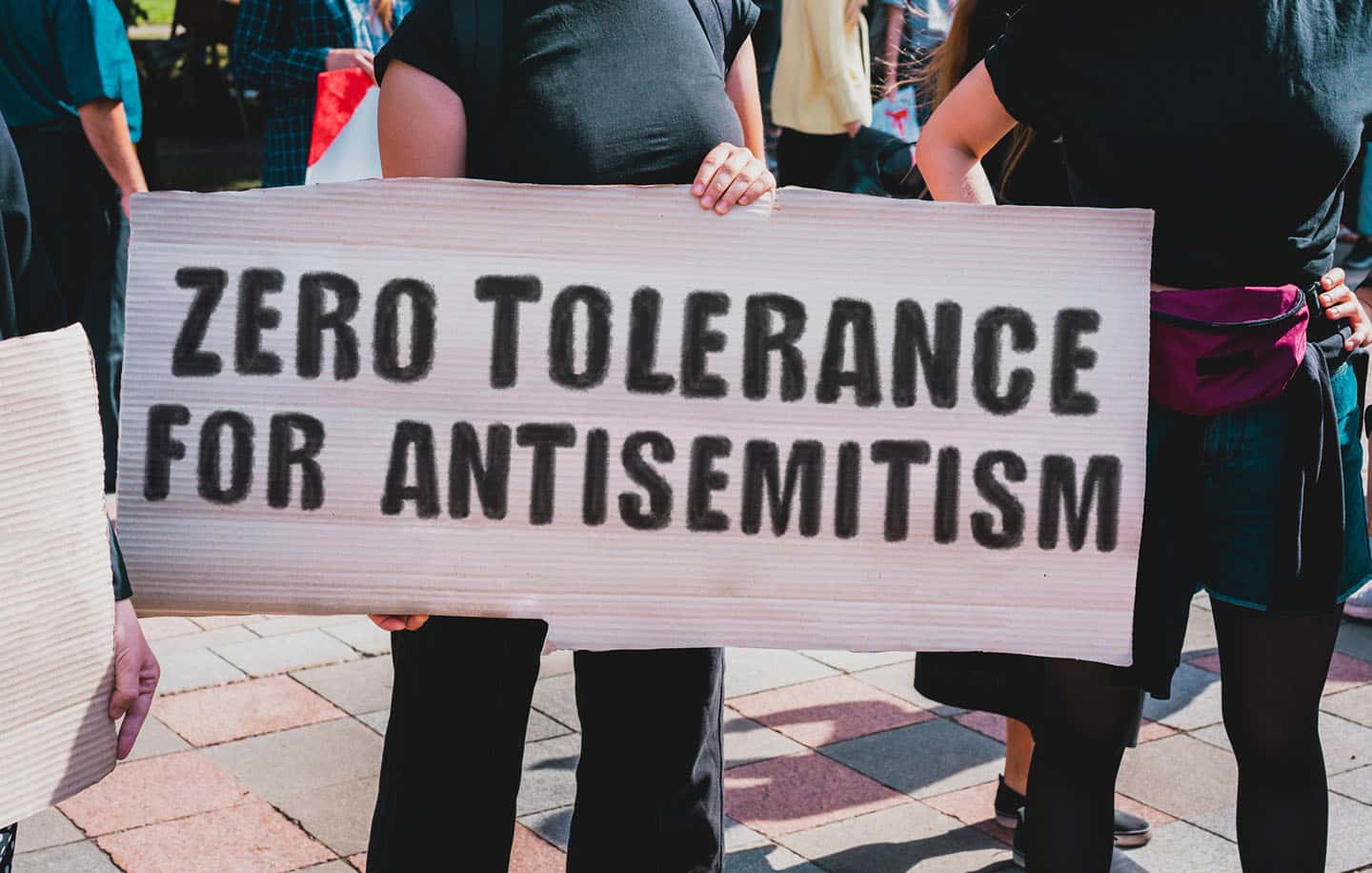 Andrii Koval/Getty Images
Andrii Koval/Getty Images I can’t tell you how often I get emails from Jewish groups alerting me that antisemitism is on the rise. Week after week, I’m told that this is “nothing short of alarming” and we must “rise up” to fight it.
These messages, needless to say, invariably come with a pitch for donations. After all, how can you fight something so serious without money? If money makes the world go round, in the Jewish communal world antisemitism makes the money come out.
Which brings up this question: What happens if antisemitism ever goes down? That is, if activist groups succeed in lowering antisemitism to non-alarming levels? Without the urgent crutch of alarmism, how much money would these groups raise?
Here’s the thing about alarmism: it’s like sugar. It’s cheap and instant. Deep down you may know it’s not great for you, but the taste is irresistible.
Just as our brains are wired to crave certain tastes, they’re wired to look out for trouble. A news story about the alarming rise of antisemitism can quickly flood our brains, setting us up perfectly for a money pitch.
That’s why combatting antisemitism has become such a growth industry: it’s a no brainer. The cause is so blatantly obvious, who could ever be against it? If we feel “they’re coming after us,” must we not rise up at once and fight?
The crucial question is always how to fight. Just as in a literal battle, we assume that the best way to fight is through confrontation. We must condemn, call out, punish, expose, protest, squelch the evil virus. This kind of “battle” works best with donors because it’s concrete and visible.
But does it work?
I’ve written before that if the fight against antisemitism were a business, it would go into Chapter 11. How else to explain that after years and years of pouring more and more money and resources into the fight, somehow, we keep hearing that “it’s never been worse”? Is it possible that the more noise we make, the worse it gets?
In fairness, one reason we’ve been pouring so much money into a losing battle is that antisemitism is unlike any other cause. It holds a sacred, unique place in the Jewish consciousness. How could it not? Jew hatred is the world’s oldest, most resilient hatred. It’s behind the darkest event in our history. No matter where we’ve been and what we’ve done, the virus has found a way to adapt and spew its poison on the Jews.
Any news story, any email, any conversation that touches on the subject can set us off. We have a 2,000-year reservoir of fear to draw upon. This fear is the ultimate trigger for donors, readers and fundraisers alike.
But we pay a price for allowing that fear to hijack our brains. For one thing, fear forces us into a short-term mentality. When we’re in the throes of short-term battles, nothing else matters but the here and now. The long-term loses saliency.
It’s in the long-term, however, where the Jewish future lies. “Fighting against hate” may bring us temporary satisfaction, but it won’t nourish a strong and lasting Jewish identity.
This doesn’t mean we should ignore antisemitism; it means we shouldn’t allow it to dominate us. Yes, we should take security precautions when needed; we should use every legal recourse at our disposal; we should correct the lies against Israel.
At the same time, we should pick our battles and stop publicizing every little act that offends us under the guise of “calling out.” We should stop deluding ourselves and inflating expectations that we can ever “eliminate Jew hatred.” We should stop playing in the Victim Olympics, because it’s a game we’ll always lose. And we should stop looking like fragile, humorless killers of free speech who worry only about our own.
If we’re going to worry about our own, let’s focus on what we are for, not what we are against. Let’s educate our leaders and encourage our donors to elevate the positives. In the long run, an attachment to our ancient and timeless tradition is what will last. Bringing Jews to Shabbat tables will do more for the Jewish future than bringing them to demonstrations against Jew hatred.
It’s true that in recent years, the focus on fighting a common enemy has lit a Jewish spark in our community. But band aids are temporary. Skirmishes come and go. If we allow the haters to define our identity and priorities, we can’t help but lower ourselves, whether we realize it or not. Haters are weakened when we don’t give them the bright lights they crave.
I’m waiting for the day when nurturing strong Jewish identities will overtake the fight against Jew hatred as a communal priority. It won’t be as dramatic or immediate or lucrative, but there’s no need to panic, because it’ll be better for the Jews and the Jewish future.























 More news and opinions than at a Shabbat dinner, right in your inbox.
More news and opinions than at a Shabbat dinner, right in your inbox.